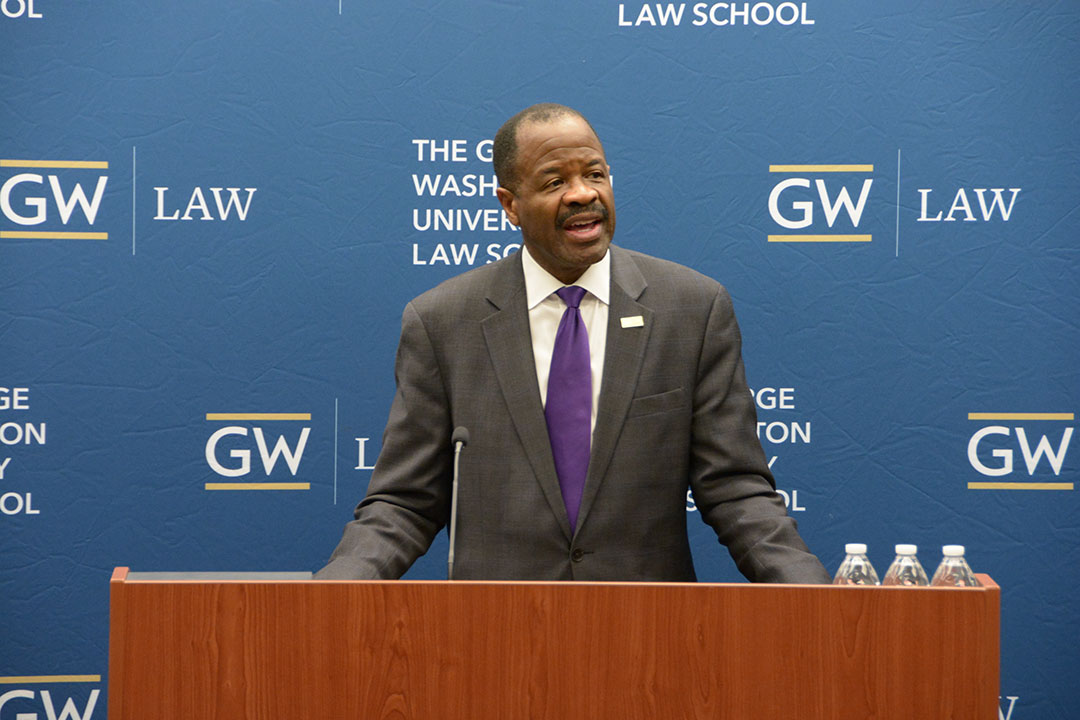The George Washington University Law School is pleased to announce its first major curricular change in more than a generation. Spearheaded by GW Law Dean Blake D. Morant, the Legal Research and Writing (LRW) program will be transformed from an adjunct-based model to one taught by full-time professionals beginning in the fall of 2019. As a part of this reform effort, the LRW program will become six credit hours instead of four, and a new course on legislation and regulation will be introduced.
"As one who has taught legal analysis in many forms, I wholeheartedly pursued and promoted these innovations," Dean Morant explains. "Not only will it improve the instruction of a vital skill that our students require, but it also signals to employers and the academy GW Law’s commitment to ensuring the competency of our students as both writers and researchers."
The current LRW program includes more than 40 adjuncts teaching courses and students earning up to four credit hours in their first year. Under the new program, eight full-time professors will teach, and students will earn six credit hours at a time when most U.S. law schools are offering four or five credits. The additional credits will include a more intensive writing experience during the spring semester.
Likewise, the new course on legislation and regulation will introduce the fundamentals of administrative law and regulatory interpretation, giving students significant grounding in doctrine key to governmental agencies and legal practice in the Washington, D.C., area. "No other law school in the area offers this innovation, and it remains rather rare in the legal academy at large," says Dean Morant.
This transformation will allow the law school to place increased emphasis on the role of the lawyer and the lawyer’s relationship to the client and will provide a greater introduction to the practice of law.
According to Dean Morant, "These changes, which position GW Law as a curricular leader, will augment our already strong program, add a professional development component, and make our students practice ready. Students will have more time to devote to fact development, simulated client interactions, professional identity formation, and self-directed learning."


